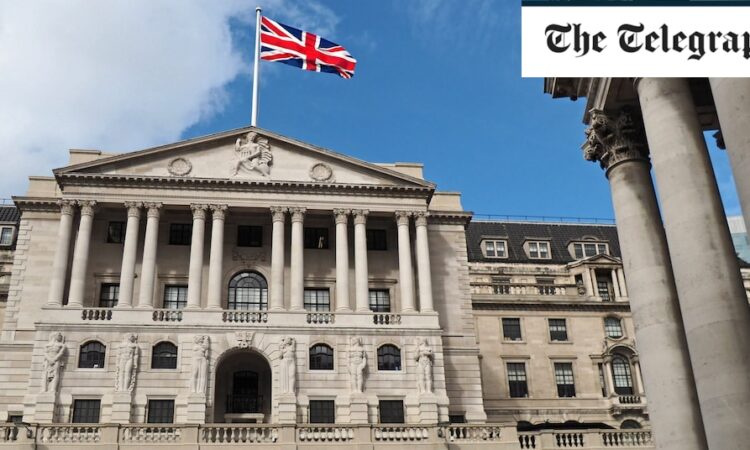
This is a problem for the Government because successive chancellors, from Alastair Darling to Rishi Sunak, promised to cover any losses on the scheme. Last year Jeremy Hunt sent £44bn to the Bank.
Mr Moberly’s comments come as the Labour and Conservative parties have ruled out increasing the headline rates of major levies.
Mr Moberly said: “The two major parties have hemmed themselves in on this front; both have ruled out raising income tax, National Insurance, or VAT. It could be that the next government finds ways to increase the tax burden in a way that does not contravene pre-election pledges.
“Thresholds could be frozen or exemptions reviewed as an alternative to raising tax rates. Nonetheless, these pledges will make the task of increasing revenues more difficult from a political perspective.”
Nigel Farage, leader of Reform UK, has proposed slashing payments from the Bank of England to commercial banks as a way to stem the flow of cash out of the Treasury.
The party’s manifesto said the “Bank of England must stop paying interest to commercial banks on QE reserves.”
UK Finance, the bank lobby group, said Reform’s proposals would have “real consequences” for the economy, labelling it an “additional tax” on the banking sector.
David Postings, chief executive of UK Finance, said: “Changing the current approach would have real consequences for the UK economy and likely lead to consumers and businesses facing higher banking costs.”
Barclays recently warned that removing the interest would lead to higher lending rates and lower deposit rates as lenders tried to offset the hit.
Meanwhile, the economic backdrop may be deteriorating, adding to the problems facing the next government.
After the strong start to the year, when GDP grew by 0.8pc in the first quarter, a rate described as “gangbusters”, momentum has ebbed, according to Sanjay Raja at Deutsche Bank.
He said: “UK GDP, we think, will likely stall in April, weighed down by falls in both the services and manufacturing sectors.
“We expect second quarter GDP to slow a little from the hot start to the year, coming in at 0.3pc.”






